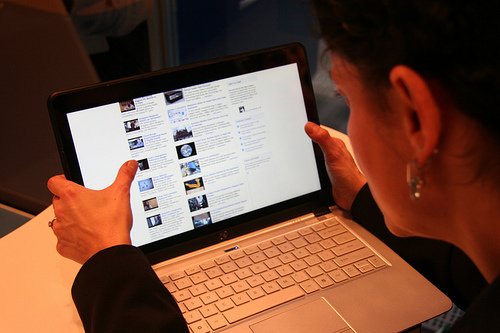


While we were in the midst of analyzing how the respective platforms of the Democratic and Republican parties would impact people with disabilities during the current election cycle and enjoying some terrific action from the 2012 Paralympic Games, the U.S. Department of Labor announced the winners of the $10,000 Disability Employment App Challenge it launched back in May.
The three winners were first announced via Twitter on August 30; just before the Labor Day holiday, appropriately enough, since the goal of the contest was to create “innovative technology tools to improve employment opportunities and outcomes for people with disabilities,” as stated by Assistant Secretary of Labor for Disability Employment Policy, Kathleen Martinez, in a Disability.gov blog post. Martinez was excited to report that the during the three-month period in which the contest was held, the dedicated site accumulated nearly 2,500 followers and fostered the kind of lively discussion that is critical to forwarding the cause:
As a long-time user of accessible technology, this dialogue is near and dear to me. When it comes to disability employment, technology is a game changer — if it’s accessible, that is. But when it’s not, it excludes.
The Innovation Award ($5,000 grand prize) went to Access Jobs, a job-search portal created by Development Infostructure, Inc., also known as Devis. The site’s use of responsive design and other accessibility techniques optimizes the content in a way that makes it easy to view and interact on any computer, tablet, or phone platform. But the real key to the success of Access Jobs might be the tool that enables employers to add job postings to the site with the most minimal of additional steps. A search for jobs in Massachusetts generates hundreds of listing from full-time work in key industries like IT and Health Care to part-time positions as retail cashiers and warehouse work for light assembly, packaging, and fulfillment.
VoisPal won the People’s Choice Award ($3,000). The Android-based Augmentative and Alternative Communication (AAC) tool comes with more than 5,000 commonly spoken sentences to help people with speech disorders express themselves. People with disabilities can create customized categories to help them interview for jobs or make group presentations. This video demonstrates the versatility of the app. (It also might make you crave a cup of coffee!)
The final contest winner was the web developer firm, WhatSock, in the Above and Beyond Accessibility category ($2,000). The company’s Accelerated Dynamic Content (AccDC) development resource is a free tool that automatically renders dynamic content to ensure accessibility for screen reader and keyboard-only users. The explanations for how this works are highly technical, but the demos on the company website show how it can be incorporated into commonly used programs, including word-processing programs and tools like Google Maps.
Explanations and links to all 18 contest entries are available on the disability.challenge.gov site. Check them out and post any comments you might have about them below.
Image by Intel Free Press.